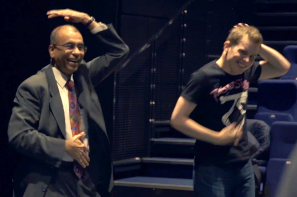
People with a learning disability often experience poorer access to healthcare and poorer outcomes – dying significantly younger than those without a learning disability. We encourage people to enter learning disability services in a variety of roles. These roles focus on helping people to live happier, more fulfilling lives.
Across health and social care there are a range of roles working with people with learning disabilities. They support people to live happier, healthier, and more fulfilling lives. People are needed across health and social care to offer this support.
What is a learning disability?
A learning disability is defined by the Department of Health as a significantly reduced ability to understand new and complex information or to learn new skills (impaired intelligence), along with a reduced ability to cope independently (impaired social functioning), which started before adulthood.
The NHS expands on this definition, adding: a learning disability affects the way a person learns new things throughout their lifetime. A learning disability affects the way a person understands information and how they communicate. This means they can have difficulty understanding new or complex information, learning new skills, or coping independently.
Around 1.2 million people in the United Kingdom have a learning disability.
Some people with a mild learning disability can look after themselves independently, but they may need a bit longer than usual to learn new skills. Other people may not be able to communicate at all, and they may have other disabilities as well or they may need help with everyday tasks.